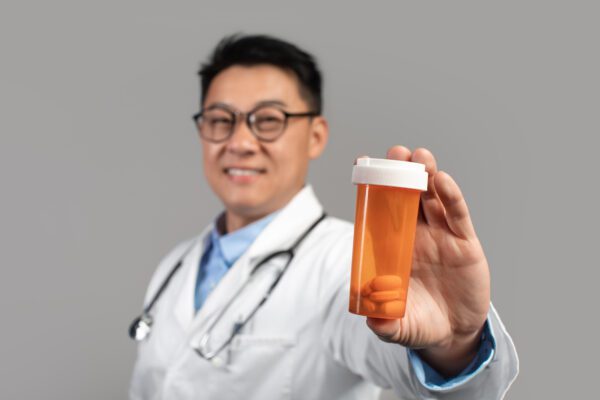Benefits of Group Therapy
Group therapy provides numerous advantages for individuals dealing with depression. By participating in a supportive environment alongside others facing similar challenges, we can cultivate valuable connections and insights that promote healing.
Sense of Belonging and Connection
One of the greatest benefits of group therapy is the sense of belonging it fosters. Participants can connect with others who are navigating similar mental health challenges, effectively reducing feelings of isolation, judgment, or shame. As noted by Citizen Advocates, this supportive atmosphere encourages individuals to share their experiences, leading to deeper connections that help alleviate loneliness.
Additionally, being part of a group helps individuals to form lasting friendships and practice social skills, creating emotional support networks that extend beyond the therapy sessions. For those struggling with depression, the ability to engage with others who understand their experiences can provide a profound sense of relief and hope (Lifespan Counseling).
Exposure to New Perspectives
Another vital aspect of group therapy is its capacity to expose participants to different viewpoints and coping mechanisms. Group members often share unique strategies for handling challenges, providing insights that might not have been considered previously. This process not only helps participants gain new perspectives but also allows for mentorship and guidance from those at different stages in their recovery, as highlighted by Citizen Advocates.
The diverse yet supportive nature of group therapy allows individuals to broaden their understanding of mental health challenges and adopt new techniques for managing their own experiences. This exposure can be instrumental in personal growth and self-discovery during treatment.
By embracing these benefits, those involved in group therapy can improve their overall mental health and enhance their recovery journey. For further insights into the significance of group therapy in addressing mental health issues, refer to our section on group therapy mental health.
Commitment and Motivation
Group therapy plays a significant role in maintaining commitment and motivation among individuals seeking recovery from depression. The dynamics within a supportive group can profoundly impact a person’s journey toward healing.
Staying on Track in Recovery
Being part of a therapy group provides individuals with the motivation needed to stay committed to their recovery goals. As noted by Citizen Advocates, the encouragement and feedback from supportive group members are essential elements that help individuals remain focused.
The accountability that comes from sharing one’s progress and setbacks with others can deter individuals from drifting away from their treatment plans. The presence of peers who understand their struggles reinforces the importance of commitment and helps them navigate challenges together.
Supportive Group Dynamics
Supportive dynamics within the group are instrumental in fostering a positive recovery environment. By interacting with others facing similar challenges, participants can form meaningful connections. This sense of community contributes to personal growth and self-discovery, allowing individuals to address their issues collaboratively.
In successful group therapy sessions, the ideal number of participants is often between 6 to 12 individuals, as recommended by American Addiction Centers. This small group size promotes intimacy and allows for active participation, enhancing the overall effectiveness of the therapy.
The blend of shared experiences, mutual support, and honest feedback cultivates an atmosphere where individuals feel safe to express their emotions. This environment can lead to breakthroughs in understanding and coping mechanisms for managing depression. Furthermore, structured interactions can help reduce psychological risks associated with group therapies, ensuring a balanced and safe space for recovery (PubMed Central).
Through commitment, motivation, and supportive group dynamics, individuals can find their path to recovery and experience the healing potential of depression group therapy.
Self-Discovery and Personal Growth
Overcoming Obstacles Together
Engaging in group therapy provides a unique opportunity for self-discovery and personal growth through shared experiences. Participants often find that facing challenges alongside others fosters a sense of unity and support. This collaborative environment encourages individuals to open up about their struggles, leading to valuable insights and effective coping strategies.
In our sessions, group members can offer honest feedback and perspective, which can be instrumental in overcoming personal barriers. By learning from others’ experiences and hearing diverse viewpoints, individuals can develop new strategies for handling obstacles they may face in their recovery journeys. Group therapy serves as a platform for exploring personal issues within a supportive context, highlighting the importance of community in the healing process.
The therapeutic dynamics of group interactions can significantly enhance personal growth. As individuals share their challenges, they can also receive mentorship from peers who are further along in their recovery. This exchange of support helps to create a growth-oriented environment where everyone learns from one another, which is fundamental for personal development.
Impact on Overcoming Obstacles in Therapy
Group therapy is structured to help individuals navigate their recovery journeys by emphasizing collective commitment. Members inspire each other to stay dedicated to their treatment and provide motivation throughout. The supportive relationships formed in these settings can have a profound impact, as consistent encouragement from peers often translates to greater accountability and success in overcoming personal struggles.
Research indicates that group therapy can yield significant improvements in mental health, particularly for individuals dealing with depression. The interactions and shared understandings that emerge from group therapy not only provide comfort but also forge connections that bolster confidence and resilience.
| Benefit of Group Therapy | Description |
|---|---|
| Honest Feedback | Participants receive constructive input from others, promoting self-awareness and personal growth. |
| Increased Motivation | Group members encourage one another to remain committed to their goals. |
| Shared Experiences | Individuals learn from diverse coping mechanisms and strategies employed by peers. |
| Sense of Community | Building connections fosters a feeling of belonging, essential for emotional healing. |
The combined benefits of group dynamics, peer support, and shared insights allow individuals to address their obstacles effectively. For additional resources about group settings, including types of therapy like group therapy addiction or group therapy mental health, we encourage exploration of various therapeutic options tailored to personal needs.
Group Therapy for Depression
Importance in Mental Health Treatment
Group therapy plays a vital role in the overall treatment of depression. It provides a space where individuals can connect with others who share similar experiences, facilitating a supportive environment for healing. This type of therapy is particularly beneficial for those struggling with mood disorders, anxiety, and even substance use disorders.
One major benefit of group therapy is that it exposes individuals to various viewpoints and coping strategies. This exposure enables participants to acquire new perspectives on their challenges while also learning from others who may be further along in their recovery journey (Citizen Advocates). By sharing experiences and techniques for overcoming obstacles, members can cultivate a sense of community that fosters motivation and commitment to personal goals.
Impact on Depression Symptoms
The effectiveness of group therapy in addressing depression symptoms is well-documented. Research indicates that participation in group therapy significantly reduces symptoms of depression compared to those receiving no treatment.
| Measurement Period | Effect Size (ES) |
|---|---|
| Post-Treatment | 1.026 |
| Follow-Up | 1.178 |
These effect sizes suggest that group therapy can lead to substantial improvements in mental health, contributing to a more stable emotional state (NCBI). By providing a structured environment and facilitating open discussion, this therapeutic approach allows individuals to tackle their feelings of isolation and despair, ultimately paving the way for recovery.
As we consider various mental health strategies, we recognize that group therapy is not just a supplement to individual therapy; it is an essential component of comprehensive treatment plans. For those seeking support, integrating options like cognitive behavioral therapy or mindfulness-based therapy can enhance the effects of group sessions. Engaging in therapies that address both group dynamics and individual challenges allows participants to explore their emotions while benefiting from collective wisdom and encouragement.
Factors Influencing Group Therapy Outcomes
Understanding the dynamics that affect the outcomes of group therapy is essential for optimizing the therapeutic experience. Two crucial factors in this context are the therapist and group dynamics, as well as the patient characteristics and expectations.
Therapist and Group Dynamics
The effectiveness of group therapy can largely depend on the therapist’s approach and the dynamics that emerge within the group. Leadership styles, personality factors of therapists, and how they facilitate communication can significantly influence the group’s progress. Cohesion among group members and the established roles within the group further contribute to the treatment outcomes.
Research indicates that factors such as selection errors—where certain individuals may not be well-suited for group participation—can lead to negative results, including heightened symptoms and dropout rates. Our focus should remain on creating a supportive environment that fosters open communication and connection among members. For optimal effectiveness, group therapy typically involves 6 to 12 individuals, allowing for meaningful interaction while maintaining manageable dynamics (American Addiction Centers).
| Factor | Impact on Therapy Outcomes |
|---|---|
| Therapist’s Leadership Style | Can promote or hinder group cohesion |
| Group Cohesion | Facilitates trust and support among members |
| Established Roles | Directs communication and engagement within the group |
Patient Characteristics and Expectations
Individual characteristics of participants also play a pivotal role in group therapy outcomes. Factors such as preexisting psychopathology, unrealistic expectations, and readiness to engage can impact experiences. For instance, members harboring misconceptions about therapy objectives may face difficulties that lead to negative therapeutic changes, including worsening symptoms or disengagement.
It is essential for us to recognize the varying backgrounds and mental health needs within the group. By establishing realistic goals and ensuring that group members feel heard and supported, we can enhance the likelihood of positive outcomes. We also acknowledge that effective group therapy involves not only addressing these individual aspects but also the collective dynamics, ensuring that each member contributes to a healthy, constructive environment.
| Characteristic | Potential Impact |
|---|---|
| Preexisting Psychopathology | May complicate interaction and progress |
| Unrealistic Expectations | Can lead to disengagement or frustration |
| Readiness to Engage | Influences willingness to share and participate |
Addressing these factors in therapy choice and execution is crucial for enhancing the effectiveness of depression group therapy, leading to better recovery outcomes. Through a deep understanding of both therapist dynamics and patient characteristics, we can fine-tune our approach in ways that promote healing and personal growth.
SAMHSA Resources for Depression Group Therapy
National Helpline and Support Services
The Substance Abuse and Mental Health Services Administration (SAMHSA) offers a valuable resource for individuals seeking support for mental health and substance use disorders through their National Helpline. This free, confidential service is available 24/7, providing treatment referral and information throughout the year. Those who are looking for options regarding depression group therapy can benefit from this resource, as it assists in connecting individuals with the appropriate services tailored to their needs.
The National Helpline is especially useful for individuals who may be overwhelmed and unsure of where to start on their journey to healing. By contacting the helpline, they can receive guidance on suitable group therapy options and any other necessary support services.
Evidence-Based Practices and Toolkits
SAMHSA is committed to advancing behavioral health across the nation and provides resources that help enhance the effectiveness of depression group therapy. They offer evidence-based practices, clinical practice guidelines, and various toolkits that professionals and individuals can utilize.
These tools are designed to improve the quality of group therapy sessions and can play a crucial role in ensuring that both participants and facilitators have access to the best practices in mental health treatment. Such resources enable individuals to understand the therapeutic framework better so they can engage more effectively in their healing process. For further exploration of therapy options available for different situations, individuals can look into further therapies such as cognitive behavioral therapy and dialectical behavior therapy.
For a comprehensive understanding of group therapy’s role in supporting individuals with depression, including co-occurring mental health disorders, SAMHSA’s resources provide the necessary information and support to foster effective and meaningful therapeutic experiences.















